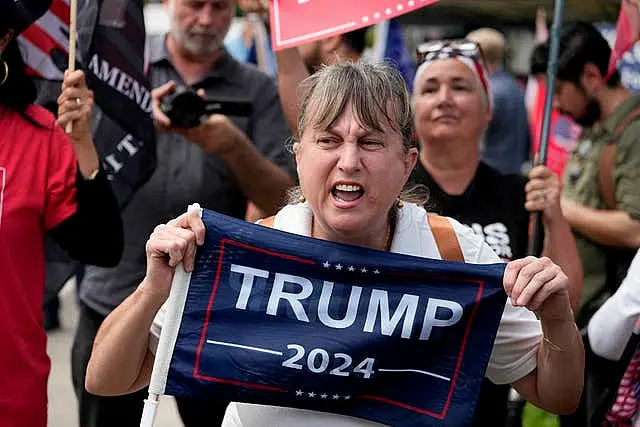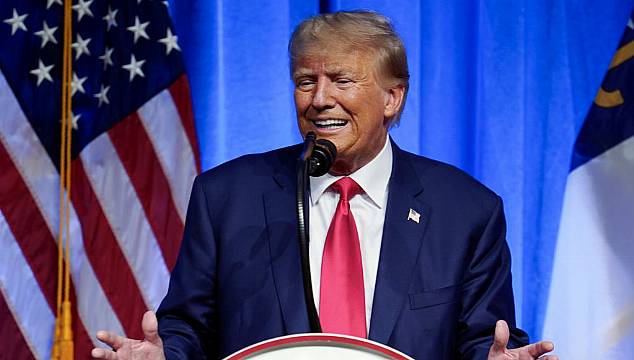Former US president Donald Trump is set to make his first court appearance on charges of hoarding top secret government documents, boastfully displaying them to visitors and trying to hide them from investigators who demanded them back.
Mr Trump approached his Miami court date with characteristic bravado, insisting that he has done nothing wrong and was being persecuted for political purposes.
But the gravity of the moment is unmistakable as he answers to 37 felony counts that accuse him of wilfully retaining classified records that prosecutors say could have jeopardised national security if exposed.
The case is laden with political implications for Mr Trump, who currently holds the dominant spot in the early days of the 2024 Republican presidential primary.

But it also poses profound legal consequences given the prospect of a years-long prison sentence.
Even for a defendant whose post-presidential life has been dominated by investigations, the documents probe has stood out for both the apparent volume of evidence amassed by prosecutors and the severity of the allegations.
It is also a watershed moment for a US Justice Department that until last week had never before brought charges against a former president.
Attorney General Merrick Garland, an appointee of US president Joe Biden, sought to insulate the department from political attacks by handing ownership of the case last year to a special counsel, Jack Smith, who on Friday declared: “We have one set of laws in this country, and they apply to everyone.”
The arraignment, though largely procedural in nature, is the latest in an unprecedented public reckoning this year for Mr Trump, who faces charges in New York arising from hush money payments during his 2016 presidential campaign as well as ongoing investigations in Washington and Atlanta into efforts to undo the results of the 2020 race.
He has sought to project confidence in the face of unmistakable legal peril, attacking Mr Smith as “deranged”, pledging to stay in the race and scheduling a speech and fundraiser for Tuesday night at his New Jersey golf club.

“They’re using this because they can’t win the election fairly and squarely,” Mr Trump said on Monday in an interview with Americano Media.
The court appearance is also unfolding against the backdrop of potential protests and unrest.
Some high-profile backers have used barbed rhetoric to voice support.
Mr Trump himself has encouraged supporters to join a planned protest on Tuesday at the Miami courthouse, where he is expected to surrender to authorities.
Some Trump supporters were also planning to load buses to head to Miami from other parts of Florida, raising concerns for law enforcement officials who are preparing for the potential of unrest around the courthouse.
Miami Mayor Francis Suarez said the city would be ready, and police chief Manuel A Morales said the centre of the city could see anywhere from a few thousand up to 50,000 protesters. He said the city would divert traffic and possibly block streets depending on the crowd size.
Unlike in the New York case, where photographers produced images of a sombre-faced Trump at the courtroom defence table, the public’s view will be limited. Cameras are generally not permitted in federal courts, and a judge on Monday night barred reporters from having phones inside the building.
A federal grand jury in Washington has heard testimony for months in the documents case but the Justice Department filed it in Florida, where Mr Trump’s Mar-a-Lago resort is located and where many of the alleged acts of obstruction occurred.
Though Mr Trump is set to appear on Tuesday before a federal magistrate, the case has been assigned to a District Court judge he appointed, Aileen Cannon, who ruled in his favour last year in a dispute over whether an outside special master could be appointed to review the seized classified documents.
A federal appeals panel ultimately overturned her ruling.







